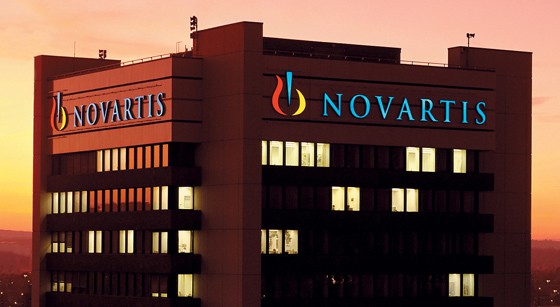
Novartis has taken a step closer to seeking approval for its basal cell carcinoma (BCC) therapy sonidegib (LDE225) after the drug cleared a pivotal trial.
The orally-active drug achieved a clinically-significant response in patients with locally advanced or metastatic BCC – including total disappearance of the tumour in some cases – within six months of starting treatment in the phase II study, said Novartis.
The company has not yet shared the full results of the study and said it would do so at a future scientific meeting.
While patients with melanoma-type skin cancer can see a range of new therapies emerging from the pipeline, with new agents such as Bristol-Myers Squibb’s Yervoy (ipilimumab), Daiichi Sankyo/Roche’s Zelboraf (vemurafenib) and GlaxoSmithKline’s Mekinist (trametinib) and Tafinlar (dabrafenib) already available and improving survival rates, those with BCC have been somewhat less fortunate.
Melanoma is typically regarded as more dangerous, but BCC is the most common form of skin cancer – accounting for 80 per cent of all non-melanoma cases – and can be highly disfiguring and life-threatening if it reaches advanced stages. Added to that, the incidence of BCC is rising around 10 per cent a year.
“For people living with advanced basal cell carcinoma there are currently limited treatment options,” according to Novartis’ head of oncology Alessandro Riva. “These results demonstrate the potential for LDE225 to offer a treatment option for this patient population.”
Sonidegib is an inhibitor of a drug target known as smoothened (SMO), part of the Hedgehog pathway that is implicated in the pathology of a number of different tumour types.
This pathway is also targeted by Roche’s Erivedge (vismodegib), which was granted approval as a BCC therapy in the US in 2012 and in Europe last year. Erivedge sales rocketed more than 160 per cent to reach 75m Swiss francs ($84m) last year has been tipped to make more than $500m a year at peak, provided it wins approval in additional indications.
LDE225 is currently in clinical development for a variety of diseases including myelofibrosis, leukeamia, and solid tumours including pancreatic, breast and small cell lung cancers, as well as in combination studies with tyrosine kinase inhibitors such as Novartis’ chronic myeloid leukaemia treatment Tasigna (nilotinib).
• See PMLiVE’s Top Pharma List for Novartis’ oncology sales rank




